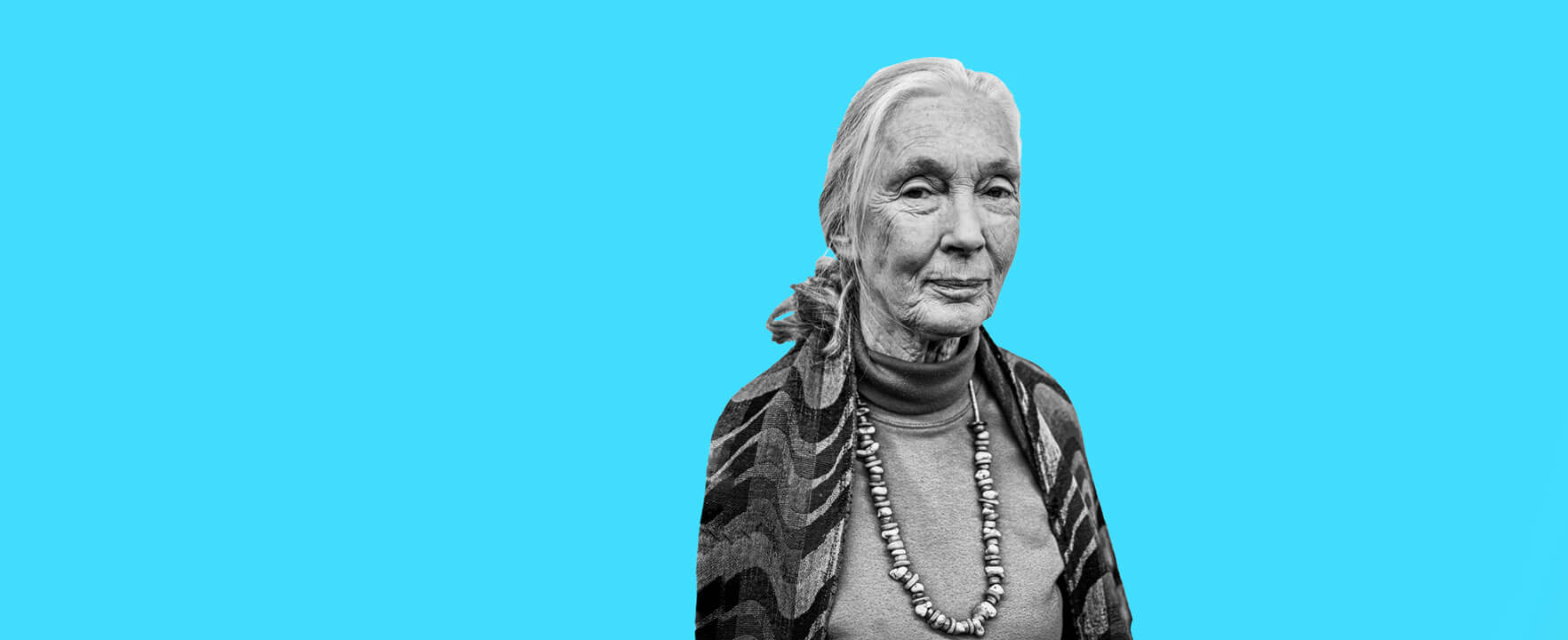When it comes to chimpanzees, no one on the planet is more knowledgeable than Jane Goodall. The English primatologist studied the social and family life of chimps for more than 60 years, beginning in the Gombe Stream National Park in Tanzania in 1960. There, she first observed the human-like behavior of the primates, including their use of tools — a trait that, at the time, was thought to exist only in humans.
In Gombe, Goodall developed a close bond with a troop of chimpanzees, eventually being accepted as the lowest-ranking member of their society — a position she held for 22 months. She remains the first and only human accepted into a chimpanzee community. Despite this, Goodall’s studies were met with some criticism — including dismissive and patronizing treatment by her primarily male colleagues. Her methods were seen by some as unscientific and lacking objectivity. This, in part, was due to her closeness with the animals: She named them rather than giving them numbers (a more standard practice), and she attributed them with human personalities, which ruffled a few feathers in the scientific community.
Today, however, Goodall is considered the world's foremost expert on chimpanzees — and a real-life Dr. Dolittle. And while her days in the field have largely come to an end, she has never stopped working. The Jane Goodall Institute continues to be a leading wildlife and environmental conservation organization, and Goodall herself remains a committed activist for both conservation and animal rights.
Here are some of Goodall’s most memorable quotes, covering everything from her beloved chimps to the role that every individual can play in protecting our planet and all its inhabitants.
My mission is to create a world where we can live in harmony with nature.
When you meet chimps you meet individual personalities. When a baby chimp looks at you it's just like a human baby. We have a responsibility to them.
True wisdom requires both thinking with our head and understanding with our heart.
There is still so much in the world worth fighting for. So much that is beautiful, so many wonderful people working to reverse the harm, to help alleviate the suffering.
We can have a world of peace. We can move toward a world where we live in harmony with nature. Where we live in harmony with each other. No matter what nation we come from. No matter what our religion. No matter what our culture.
My mother always said, “If you really want something, you’re going to have to work hard, you’ll have to take advantage of every opportunity, but don’t give up.”
Chimpanzees have given me so much. The long hours spent with them in the forest have enriched my life beyond measure. What I have learned from them has shaped my understanding of human behavior, of our place in nature.
The greatest danger to our future is apathy.
We are unique. Chimpanzees are unique. Dogs are unique. But we humans are just not as different as we used to think.
People don't believe that their actions really and truly are going to make a difference. But kids get it. They know. And they get all excited about the difference they're making.
Only if we understand, will we care. Only if we care, will we help. Only if we help shall all be saved.
You can't force change on people. Lasting change is a series of compromises. And compromise is alright, as long your values don't change.
Bizarre, isn’t it, that the most intellectual creature that’s ever lived on the planet is destroying its only home? There’s a disconnect between that clever, clever brain and human heart, love, and compassion. Only when head and heart work in harmony can we attain our true human potential.
I would never approach people about the crisis of the billions of animals in the factory farms and say you’ve got to be vegan. People have to change gradually. If you eat meat one less day a week, that’s the beginning.
I do have reason for hope. Our clever brains, the resilience of nature, the indomitable human spirit, and above all the commitment of young people when they are empowered to take action.
Every individual matters. Every individual has a role to play. Every individual makes a difference.
Photo credit: Danita Delimont/ Alamy Stock Photo
















